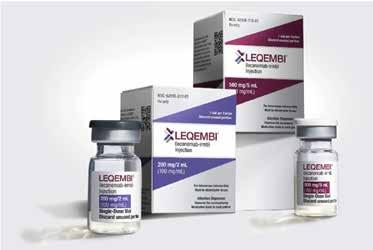
1 minute read
Clarkson, Sotto train with...
Lithuania.
The Filipinos will be facing Montenegro and Mexico in friendly matches here in the Philippines, a few days before the FIBA World Cup. The Philippines will be battling the Dominican Republic, Angola and Italy in the world cup which will start on August 25. (Ralph Edwin Villanueva/Philstar.com) of psychiatry, neurology, and gerontology at the University of Southern California’s Keck School of Medicine.
Advertisement

New Alzheimer’s drug raises hopes...
Benefits may be hard to detect. Research suggests that patients notice a “clinically meaningful” change in cognitive performance — a noticeable alteration in their ability to think, remember, and perform daily tasks — when scores rise at least 1 point on an 18-point scale used to measure Leqembi’s impact. But the change detected after 18 months for patients taking this medication was only 0.45%.
“That’s a minimal difference, and people are unlikely to perceive any real alteration in cognitive functioning,” said Alberto Espay, a professor of neurology at the University of Cincinnati College of Medicine.
Petersen has a different perspective since many patients have told him they’d be happy to put off getting worse. “If we can keep these patients stable for a somewhat longer period of time, that’s meaningful,” he told me.
Side effects are common. The drugmaker reported 17% of patients taking Leqembi experienced swelling in the brain and 13% had brain bleeds. Most of these side effects occurred during the first three months of treatment and resolved without serious consequences four months later.
In slightly more than 1 in 4 cases, there were also infusionrelated side effects — chills, aches, nausea, vomiting, a spike or drop in blood pressure, and more.
A little-discussed side effect is a reduction in brain volume associated with Leqembi and other anti-amyloid therapies. “We don’t know what this will mean to patients long term, and that’s concerning,” Espay said.
Because people with the APOE4 gene variant, which raises the risk of Alzheimer’s, are also at higher risk of Leqembi side effects, physicians at major medical centers will recommend genetic testing as they evaluate potential patients.
Not all patients will qualify. “I’m very carefully selecting the patients I think will be appropriate, focusing on people with mild cognitive symptoms who are otherwise healthy,” said Erik Musiek, an associate professor of neurology at the Washington University School of Medicine in St. Louis.
Clinics serving Alzheimer’s patients are working out the details of who will get treated with the new drug Leqembi. It won’t be for everyone with memory-loss symptoms. Contributed photo






